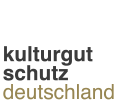National cultural property
The umbrella term “national cultural property” was newly introduced into German law in response to legislative developments at EU and international level; both Directive 2014/60/EU on the return of cultural objects and the 1970 UNESCO Convention grant far-reaching rights to initiate return proceedings in relation to special legally protected “national” cultural property that has been unlawfully exported from an EU Member State or signatory state respectively.
Until 2016, Germany conferred this status only upon cultural property that had been entered into a directory of nationally valuable cultural property. According to the German Act on the Protection of Cultural Property (Kulturgutschutzgesetz, KGSG), all objects belonging to the collections of publicly funded institutions responsible for preserving cultural property, such as museums, libraries or archives and the art collections of the Länder or the Federal Government, are granted general protection as “national cultural property” (Section 6 (1) (2) to (4) KGSG). The objects in these collections therefore benefit from a special protection status even if they have not been entered individually into a directory of nationally valuable cultural property.
“National cultural property” as a new standard umbrella term
“National cultural property” comprises two different categories: cultural objects listed in a directory of “nationally valuable” cultural property and the collections held by publicly financed institutions responsible for preserving cultural property. All “nationally valuable” cultural property is therefore “national cultural property”, but the reverse does not necessarily hold true. This is significant as regards certain provisions of the Act on the Protection of Cultural Property that explicitly relate only to “nationally valuable” cultural property.
Expanded use of international protection mechanisms
If the standard status of “national” cultural property is conferred upon a cultural object, the latter is eligible for the expanded protection mechanisms under EU and international law that apply to cultural objects granted special protection under national law.
Both Directive 2014/60/EU on the return of cultural objects and the 1970 UNESCO Convention grant far-reaching rights to initiate return proceedings in respect of cultural objects that have been unlawfully exported from a Member State or signatory state respectively, provided that the cultural object in question has been granted the status of special legally protected “national” cultural property in the relevant country. For example, this means that the Federal Republic of Germany, acting on the owner’s behalf, has 75 years to initiate return proceedings under public law in another country, irrespective of any good faith purchase that occurs in the interim.
It goes without saying that return proceedings can still be initiated based on a right of ownership, but such proceedings must be initiated by the owner himself or herself in the relevant country. Furthermore, the period of limitation is typically 30 years at most, and a change of ownership renders this course of action void.
Similar consequence in law: export licence requirement
All forms of national cultural property are subject to the same export licence requirements, with a view to stipulating the relevant criteria for lawful exports and ensuring that the aforementioned expanded return mechanisms under EU and international law can be asserted in addition to any return proceedings initiated based on the right of ownership.
The expanded protection granted to the collections held by publicly funded museums, libraries and archives does not place any obstacles in the way of the objects in these collections being loaned to another country.
Further information on the new protected status of these collections as national cultural property can also be found in the section on museums and other Institutions responsible for preserving cultural property.


